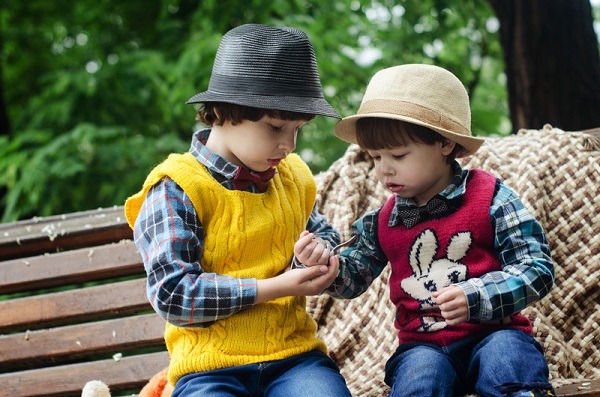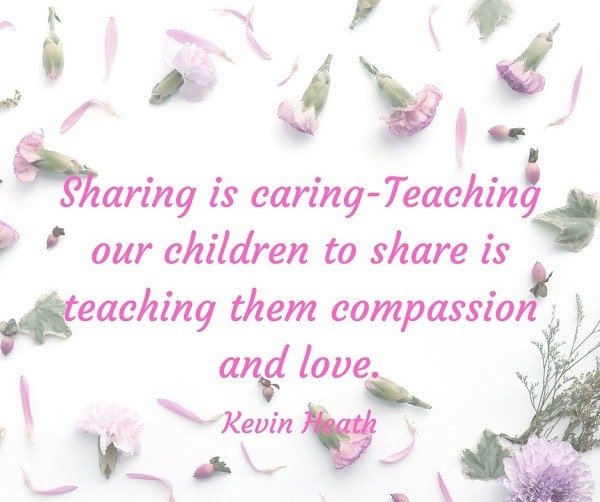As a famous saying goes ‘Charity begins at home’, growing an empathetic child requires a lot of attention and careful demonstration. Surely, the virtue of sharing and caring should be inculcated in children right from a tender age so that they grow up to be empathetic individuals.
However, as parents, we either expect them to know it themselves or forcefully try to train them to develop the habit of sharing. In the growing phase, a child develops a sense of ownership, fondness and affection for whatever they are handed with, be it toys, clothes or even food.
They do not understand the importance of sharing and thus, they are likely not to share. They are not aware of ‘sharing’ and what it means to their overall personality. Thus, helping them understand the virtue of sharing is important to shape their future years. Here are a few suggestions which you can include in your lessons to teach your child the importance of sharing.
Table of Contents
How to Teach the Virtue of Sharing?

An early start
It is crucial to develop the virtue in your child at a tender age. At later stages, the process becomes forceful or your child is already pampered too much to even care about sharing or it gets rather difficult to make them understand why sharing and being empathetic is a noble act in itself.
Starting early helps your child to learn it easily, develop a strong bond with siblings and friends and being sympathetic to the underprivileged. When the know the importance of sharing from an early age, it becomes a part of their personality.
Lead by Example
Children learn more from what they see than from what you tell them. It is therefore important that you pass on the idea of sharing with them through small daily activities. If you are snacking, ask them if they wish to take a bite from your share or ask them if you can use the crayon they are using to jot down your grocery list. It is also important for all family members to demonstrate the act of sharing with their kids to help them pick the cue better and understand how important is the virtue of sharing.
Time the Act
Get them to learn it hand-on during their play date! Specify a time for which they can have a toy for themselves which then passes on to the sibling or friend or the play partner for the same or a different set time. When they get it back, they know giving does not always mean letting go of your stuff but sharing from whatever little you have.
This makes them realize that there is no problem in sharing and how sharing does not mean to part away with their things.

Set real life examples
It might be a common sight to spot a homeless along the streets or when you walk out of any public place. Develop a habit of giving alms to at least one less-fortunate homeless guy on the streets and hand over the coin to your little one to be given.
This habit stays on for long and your child knows that it is a rightful act to empathize and share a bit of their food or money with the underprivileged. If you are associated with an NGO, things can get a lot easier when you actually let them accompany you to one of your NGO visits and develop the virtue of sharing.
This makes the child sensitive to the needs of others as well. The post, Making Your Kids Sensitive is Important talks about why sensitivity is an essential life lesson.
Set up role plays
One of the most effective and fun ways to develop the virtue of sharing in your child is through role plays. Take turns to play a role where you have to part with one thing which you value to the other person.
This makes them more accepting and in a play way they understand the importance of sharing.

Do not ask to Share-it-all
We all have certain favorite items that we refuse to part with, even as adults. That does not mean we do not understand the noble act of sharing. It could be simply something that we value a lot, something which is passed down to us as inheritance or a special gift from someone.
The same is true for kids. They surely have a favorite dress or a toy. Do not force them to part with such items of emotion when you are training them to share. Instead, if you figure out there is one particular thing that they do not want to give away, tell them that they get to keep it and the rest should be shared with the sibling.
Appreciate Them
We all hope for appreciation in one form or the other. And with kids, it is easier to get them to understand and do things when you praise and appreciate them. So make sure you never lose out a chance to appreciate them whenever you see them sharing.
Explain the Importance of Sharing
Explain to them how someone felt happy when he or she shared half of the one cookie they were holding. When they understand that their small deed has made someone happy, they realize the importance of sharing and they will spread happiness by doing it.

The Virtue of Sharing
Children learn quicker and better than adults. While it may be difficult to make a grown up understand, kids are naturally empathetic and understand the act better. Therefore, along with training your kids to develop the act of sharing, it is equally important that you help them see a difference they have made.





nice topic you covered for parents. Teaching our children is really a difficult task.. Thanks for sharing and keep it up..
Thank you so much for the appreciation. 🙂